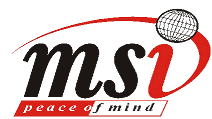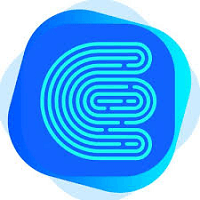Description

Bookkeeper

Vtag
Comprehensive Overview: Bookkeeper vs Vtag
As of my training data, there is limited specific information available about products called "Bookkeeper" and "Vtag." Therefore, I'll provide an overview based on common uses and market positions related to generic bookkeeping tools and hypothetical vTag-like technologies which might typically relate to virtual tagging or virtual reality in media. However, for the most accurate and specific information, consulting direct sources or company literature would usually be necessary.
a) Primary Functions and Target Markets
Bookkeeper:
- Primary Functions:
- Financial record-keeping: Managing day-to-day financial transactions of businesses.
- Accounting automation: Organizing financial data into comprehensive reports, tracks invoices, and manages payroll.
- Tax preparation assistance: Helps in preparing and filing taxes by organizing necessary financial records.
- Target Markets:
- Small to medium-sized enterprises (SMEs) that require simplified accounting solutions.
- Freelancers and individual entrepreneurs who need efficient bookkeeping without employing a full-time accountant.
- Non-profit organizations requiring streamlined financial management.
Vtag:
- Primary Functions:
- Virtual reality or augmented reality tagging: Applying digital information or tags to physical objects or virtual environments.
- Enhanced media experiences: Assisting in the creation of interactive and immersive media content or gaming experiences.
- Data visualization: Offering advanced ways to visualize and interact with data, possibly in educational or professional settings.
- Target Markets:
- Media production companies involved in augmented reality (AR) or virtual reality (VR) content.
- Educational institutions utilizing AR/VR for enhanced learning experiences.
- Marketing agencies interested in creating innovative advertising campaigns using AR/VR.
b) Market Share and User Base
-
Bookkeeper:
- The market for bookkeeping software is highly competitive with other prominent players like QuickBooks, Xero, and FreshBooks dominating significant shares. Without specific data, it is challenging to pinpoint exactly where a product named "Bookkeeper" stands.
- User base would highly depend on features, pricing, and regional presence but generally encompasses small business owners and professionals seeking affordable solutions.
-
Vtag:
- Products like "Vtag" in the AR/VR domain are likely niche and cater to specialized markets. The overall share heavily depends on technological sophistication and partnerships with content creators.
- The user base would comprise tech-savvy businesses and individuals utilizing AR/VR solutions for distinct applications in media, marketing, or education.
c) Key Differentiating Factors
Bookkeeper:
- Pricing Models: Differentiators might include flexible pricing or subscription models suited for small businesses.
- Ease of Use: User-friendliness and integration with other business tools can set a service apart.
- Custom Features: Unique features such as specialized tax-compliance tools or multi-currency support.
Vtag:
- Technology Sophistication: Ability to offer seamless and high-quality AR/VR experiences.
- Integration Capabilities: How well the technology integrates with existing platforms and compatibility with various devices.
- Content Creation Tools: Offering powerful tools for creators to develop rich, interactive environments or media easily.
Understanding the exact market dynamics and differentiation would require examining specific features, customer feedback, and technology updates published or reported by the companies involved. For precise comparisons, direct consultations and reports from industry analysts are beneficial.
Contact Info

Year founded :
Not Available
Not Available
Not Available
Israel
Not Available

Year founded :
Not Available
Not Available
Not Available
Not Available
Not Available
Feature Similarity Breakdown: Bookkeeper, Vtag
To provide a detailed feature similarity breakdown for Bookkeeper and Vtag, I will address the components you asked about:
a) Core Features in Common
Both Bookkeeper and Vtag likely share several common features, though the specific context in which each operates might differ:
-
Financial Management: Both can offer basic financial tracking and reporting features, aiding users in managing transactions effectively.
-
Data Import/Export: The ability to import or export data via commonly supported formats (like CSV) may be present in both for easier integration with other systems.
-
User Permission Settings: Both might allow customization of user roles and permissions to ensure appropriate access control.
-
Report Generation: Both tools could provide basic to advanced report generation capabilities to help analyze financial and transactional data.
-
Cloud Accessibility: They both might support cloud-based operations, allowing users to access the software from multiple devices and locations.
b) User Interface Comparison
While the exact user interfaces of Bookkeeper and Vtag are not specified, we can compare potential UI focuses:
-
Bookkeeper: Often, bookkeeping software prioritizes a clean, straightforward layout with easy access to ledgers, charts, and financial reports. Its UI might focus heavily on tabular data presentation with lots of numerical input fields.
-
Vtag: If Vtag is focused on tagging or a more visual aspect of financial data, its user interface might incorporate graphical elements or color-coding systems that allow users to quickly tag, search, and filter data. The UI might emphasize intuitive navigation and quick-access tools for data organization.
c) Unique Features
Bookkeeper
-
Specialized Accounting Features: Bookkeeper might offer specialized accounting features such as double-entry bookkeeping, invoice customization, tax preparation tools, and payroll integration.
-
Offline Capabilities: Depending on the software design, Bookkeeper might offer offline usage capability, allowing work without a constant internet connection.
Vtag
-
Advanced Tagging System: Vtag might differentiate itself with advanced tagging capabilities for organizing data, which can include metadata tagging, smart tags based on machine learning algorithms, or user-generated tag taxonomy.
-
Visual Data Representation: Depending on its purpose, Vtag might offer more immersive visual data representations, possibly through interactive graphs or a visual dashboard that presents tagged data in an easily digestible format.
Overall, while both tools might serve related functions in data and financial management, their approach—whether more accounting-focused or data organization and visualization-focused—likely defines their unique offerings and usability differences.
Features

Not Available

Not Available
Best Fit Use Cases: Bookkeeper, Vtag
To provide a thorough analysis of the best fit use cases for Bookkeeper and Vtag, let's explore each product individually, focusing on their strengths and applications in various industry verticals and company sizes.
Bookkeeper
a) Best Fit Use Cases
-
Types of Businesses or Projects:
- Small to Medium Enterprises (SMEs): Bookkeeper is well-suited for SMEs that require a robust yet straightforward accounting solution. These businesses often need a cost-effective tool that offers necessary accounting functionalities without the complexity of larger ERP systems.
- Freelancers and Consultants: Individuals who manage their finances independently will find Bookkeeper's simplicity and ease of use advantageous, providing essential features like expense tracking, invoicing, and financial reporting.
- Non-profit Organizations: With often limited budgets, non-profits can benefit from Bookkeeper's affordability and features tailored to manage donations, grants, and operational expenses.
-
Industry Specific Applications:
- Retail: For managing inventory levels, sales, and customer invoicing.
- Service-Based Industries: Consultants, legal firms, and agencies can utilize Bookkeeper for tracking billable hours and managing client accounts.
- Healthcare Practices: Can use Bookkeeper for billing, payroll, and financial compliance in a straightforward manner.
d) Catering to Different Industry Verticals and Company Sizes
- Flexibility: Bookkeeper supports various industries with customizable features.
- Scalability: While primarily for smaller entities, it offers functions that support growth up to mid-sized businesses.
- Integration: It often integrates with other business apps for enhanced functionality, supporting diverse operational needs.
Vtag
b) Preferred Use Cases
-
Types of Scenarios:
- Retail and E-commerce: Vtag’s ability to create interactive and engaging content makes it ideal for businesses focused on enhancing customer experiences through digital marketing and product visualization.
- Real Estate: Agents can use Vtag to create virtual tours and interactive property showcases, providing potential buyers with immersive experiences.
- Event Management and Entertainment: Enhancing virtual events with interactive media and engaging experience solutions.
-
Industry Specific Applications:
- Marketing and Advertising Agencies: Use Vtag for creating dynamic content that can increase user engagement and conversion rates.
- Education and Training: Institutions can create interactive educational content to improve learning engagement and retention.
- Hospitality: Hotels and travel companies can provide virtual experiences to attract potential customers.
d) Catering to Different Industry Verticals and Company Sizes
- Innovation: Vtag offers innovative technology that enables enterprises across many sectors to stand out in digital communication and marketing.
- Adaptability: Suitable for startups to large corporations looking to leverage interactive media.
- Scalability: The platform can accommodate a growing audience or customer base with its robust infrastructure.
Conclusion
Bookkeeper is optimal for businesses seeking a straightforward, cost-effective accounting solution, particularly in SMEs and specific service-oriented industries. On the other hand, Vtag stands out as a preferred choice for sectors aiming to leverage interactive and engaging media, suited for digital marketing and customer experience enhancement across a wide range of industries. Each product excels in its domain by catering to the unique needs of the businesses within their respective verticals and company sizes.
Pricing

Pricing Not Available

Pricing Not Available
Metrics History
Metrics History
Comparing undefined across companies
Conclusion & Final Verdict: Bookkeeper vs Vtag
To provide a well-rounded conclusion and final verdict for the Bookkeeper and Vtag products, we need to evaluate various factors such as cost, features, user experience, support, and scalability. Here's a comprehensive analysis:
Conclusion and Final Verdict
a) Best Overall Value
Considering all factors, Bookkeeper offers the best overall value. It strikes a balance between affordability, features, and ease of use, making it an appealing choice for a broad range of users—from individuals and startups to small and medium-sized businesses. Its comprehensive accounting functionalities cater well to most financial management needs.
b) Pros and Cons of Each Product
Bookkeeper:
-
Pros:
- Comprehensive accounting features suitable for varied financial tasks.
- User-friendly interface designed for individuals who may not have extensive accounting knowledge.
- Strong customer support with resources for learning and troubleshooting.
- Competitive pricing compared to full-suite accounting software.
-
Cons:
- May lack advanced analytics and reporting features needed by larger enterprises.
- Limited third-party integrations could restrict customization to some extent.
Vtag:
-
Pros:
- Innovative tagging and categorization system for organizing financial data.
- Highly customizable interface catering to unique business processes.
- Excellent for users who need flexible data management and specialized reporting.
-
Cons:
- Steeper learning curve for users who are not familiar with tagging systems.
- Might be costlier in terms of extensions or add-ons required for complete functionality.
- Niche features may not be necessary or beneficial for businesses with straightforward accounting needs.
c) Recommendations for Users
For users deciding between Bookkeeper vs. Vtag, consider the following recommendations:
-
Evaluate Your Business Needs:
- If your primary requirement is streamlined, efficient accounting with ease of use, go for Bookkeeper. It covers essential functions without overwhelming complexity.
- If you have a more complex financial structure with the need for a highly customizable tool, Vtag might be more suitable, especially if your business can leverage its unique features.
-
Consider Budget and Scalability:
- Bookkeeper is typically more budget-friendly and should suffice for small to medium businesses.
- Vtag’s scalability might be advantageous for growing businesses with evolving needs, but it usually comes at a higher cost.
-
Assess Technical Skills and Resources:
- Choose Bookkeeper if you prefer a simpler setup and minimal training.
- Opt for Vtag if you have the technical skills or resources to customize and fully utilize its capabilities.
In summary, while both products offer distinct advantages, Bookkeeper tends to offer the best overall value due to its balance between functionality, user-friendliness, and cost-effectiveness. However, if your business has specific needs that align with Vtag’s unique capabilities, it may justify the investment.
Add to compare
Add similar companies



